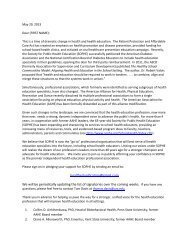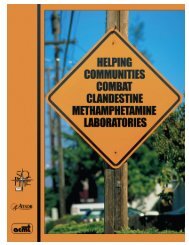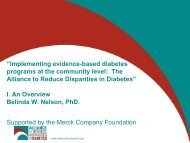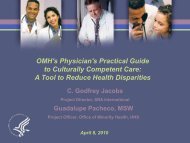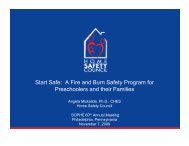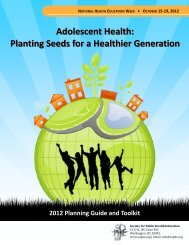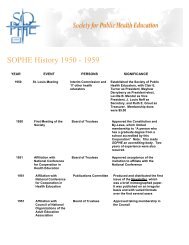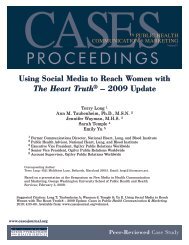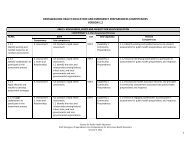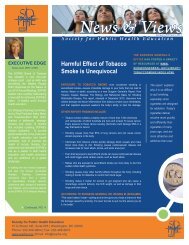An Unhealthy America: The Economic Burden of ... - Milken Institute
An Unhealthy America: The Economic Burden of ... - Milken Institute
An Unhealthy America: The Economic Burden of ... - Milken Institute
You also want an ePaper? Increase the reach of your titles
YUMPU automatically turns print PDFs into web optimized ePapers that Google loves.
<strong>An</strong> <strong>Unhealthy</strong> <strong>America</strong><strong>Milken</strong> <strong>Institute</strong>V: Long-Term Forgone <strong>Economic</strong> Growth andIntergenerational ImpactsA. IntroductionWhile the indirect impacts <strong>of</strong> chronic disease, reflected in lost workdays, disability, and reduced employee productivity,are substantial, the intergenerational impacts on economic growth are likely to be much greater. Yet there has beenlittle research to quantify the long-term effects <strong>of</strong> poor health on human and physical capital formation, or therestrictions imposed on U.S. economic growth.Since the early 1990s, the determinants <strong>of</strong> economic growth have been the subject <strong>of</strong> renewed study. Most <strong>of</strong> theexplanations fall under the umbrella <strong>of</strong> the “endogenous growth” theory. This theory is based on the observation thatthe factors that influence economic performance are determined within the model and interact with one other. 87 Othervariables and model specifications have been attempted, but only a few endogenous models have been found to bestatistically significant in explaining growth. 88Human capital is recognized as an important component <strong>of</strong> growth, but researchers have only recently begun toexamine the role <strong>of</strong> health as another component. As a result, we are now seeing greater interplay between the fields<strong>of</strong> health economics and macroeconomics, as well as a growing awareness <strong>of</strong> the endogenous relationships betweenhealth, human capital formation, and economic performance. Most <strong>of</strong> the research has been centered on infectiousdisease in developing economies. But in developed countries, where deaths from infectious and parasitic disease havegiven way to deaths from chronic and degenerative disease, the economic impacts have received less attention—partlybecause they have been harder to discern empirically.<strong>Economic</strong> growth depends on the stock <strong>of</strong> human capital (a well-trained work force) and continued investments ineducation and work-based learning and training procedures. <strong>Economic</strong> Nobelist Gary Becker <strong>of</strong>fers an insightfulsummation <strong>of</strong> the way knowledge drives innovation:“<strong>The</strong> continuing growth in per capita incomes <strong>of</strong> many countries during the nineteenth and twentiethcenturies is partly due to the expansion <strong>of</strong> scientific and technical knowledge that raises theproductivity <strong>of</strong> labor and other inputs in production. <strong>The</strong> increasing reliance <strong>of</strong> industry onsophisticated knowledge greatly enhances the value <strong>of</strong> education, technical schooling, on-the-jobtraining, and other human capital.” 89Improved health also leads to greater investment in education, resulting in higher levels <strong>of</strong> human capital. In turn,wealth increases, and a virtuous cycle <strong>of</strong> economic growth is born. But investing in health requires a broad-based87. Romer, Paul. “Endogenous Technological Change. Journal <strong>of</strong> Political Economy.” October. 1990, p. 71–102.88. López-Casasnovas, Guillem, Berta Rivera, and Luis, Currais. “Health and <strong>Economic</strong> Growth: Findings and PolicyImplications.” (Cambridge: <strong>The</strong> MIT Press, 2005), 2.89. Becker, Gary. Human Capital and the Economy: Proceedings <strong>of</strong> the <strong>America</strong>n Philosophical Society, Vol. 135 No. 1 (March1992) p. 85–92.[ 167 ]




